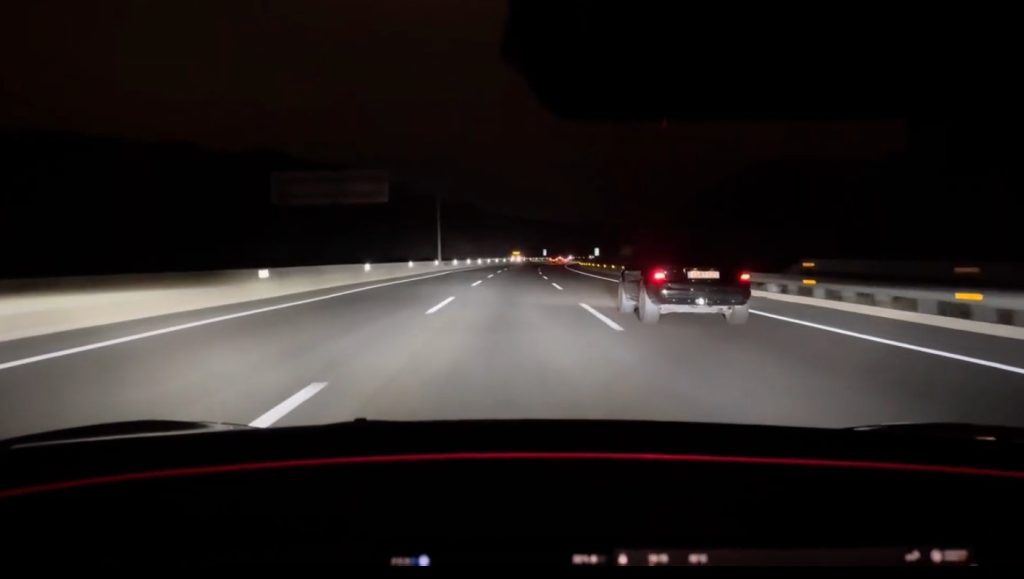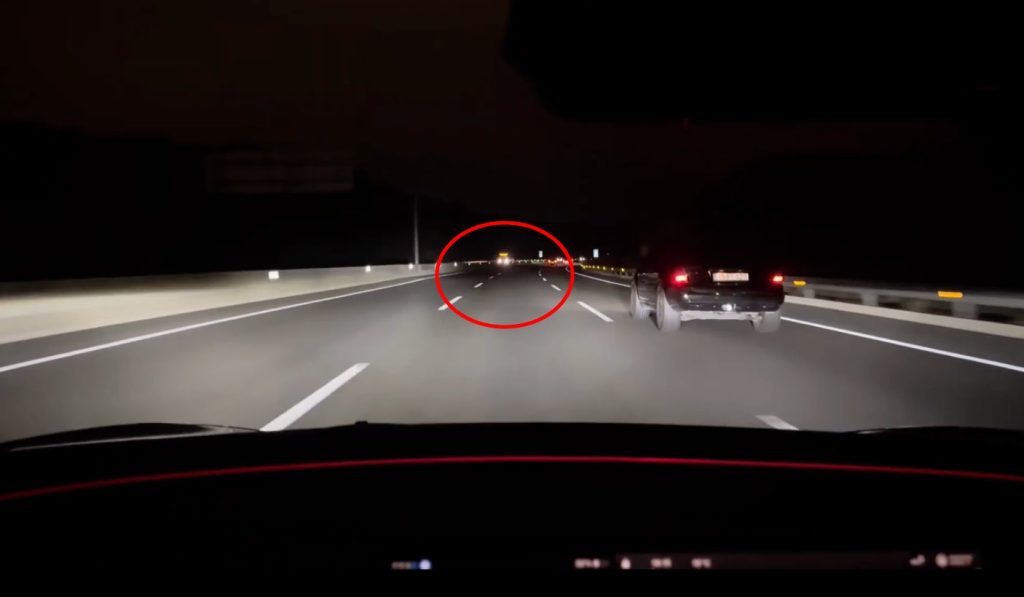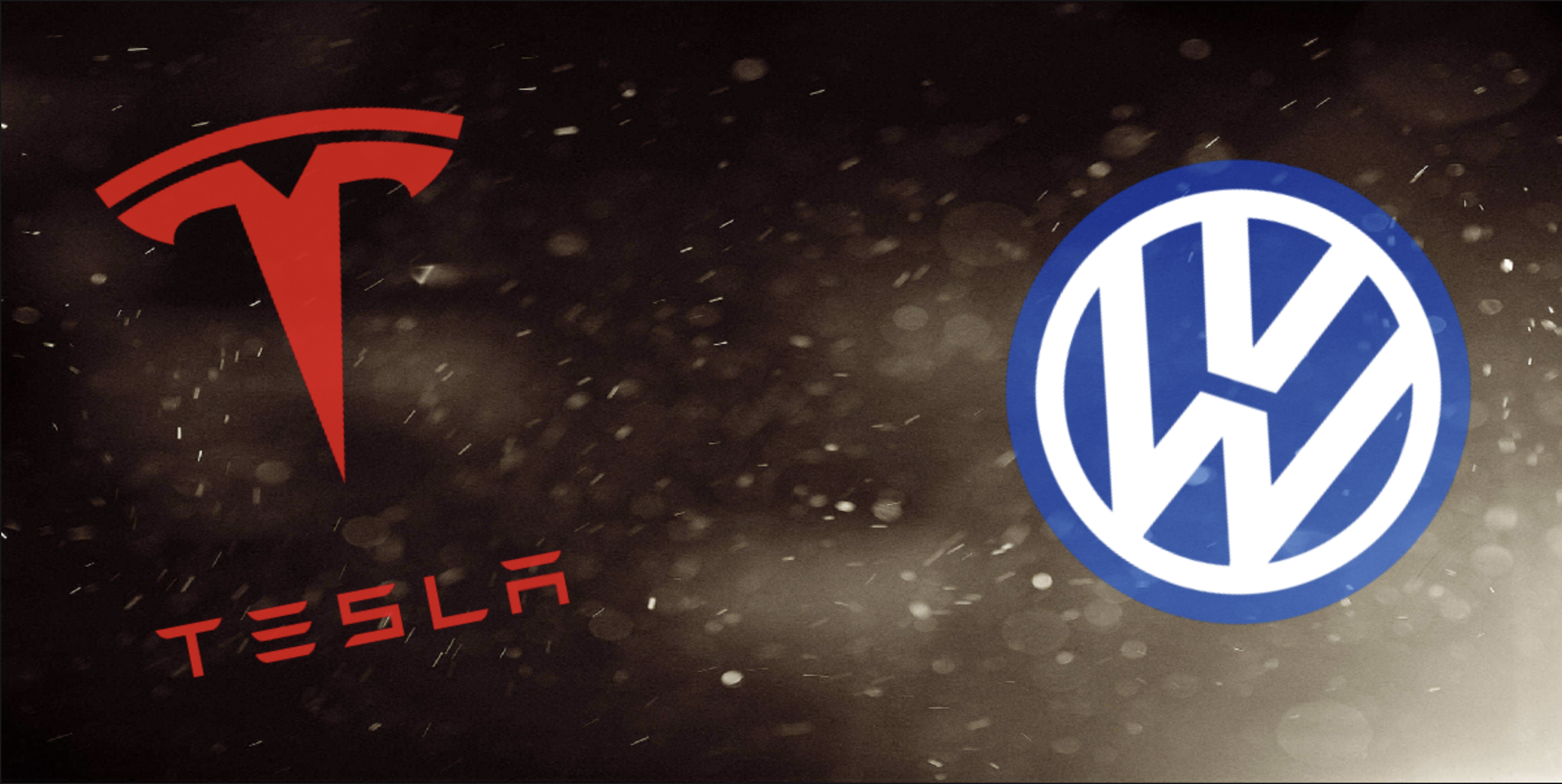
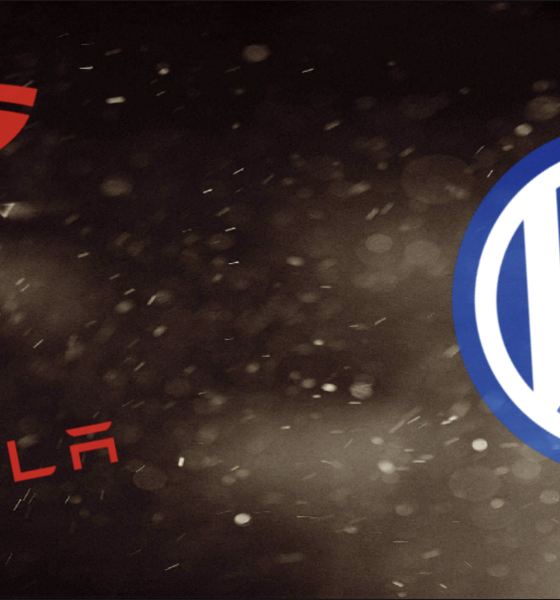
News
Tesla and Volkswagen: from fierce competitors to unlikely allies
Tesla and Volkswagen have established themselves as unlikely allies in the world of turning vehicles toward electrification. However, the two companies did not always see eye to eye, but the tides have certainly changed. Evidence of this comes just a day after Elon Musk took an unexpected stop in Western Germany to see Volkswagen Chairman Herbert Diess.
Years ago, Volkswagen and Tesla were sitting at opposite ends of the spectrum. One company was a well-established marvel of German automotive manufacturing, while the other was struggling to rally enough capital to keep its own production efforts moving forward.
However, 2020 has given the two companies and effective dose of the “Freaky Friday” treatment, where the former automaker is struggling to keep functioning EVs on the road. Meanwhile, the latter is surging forward the charge to electrification and maintains a healthy lead over other companies that are attempting to follow in their steps.
But from 2008 to 2015, Volkswagen was far from ever being considered a Tesla ally. The German automaker was violating the EPA’s Clean Air Act by knowingly placing cheat devices in their car’s emissions systems. The scandal, known as Dieselgate, set a semi-permanent mark in the minds of the environmentally-conscious.
Many swore never to consider repurchasing a Volkswagen vehicle, but the company has won some prominent figures in the EV community. Most notably, Elon Musk. But the relationship wasn’t always healthy.
Musk was critical of a conspiracy that a Volkswagen employee was criticizing Tesla through a fake name. According to numerous sources, Diess had the situation handled, but the drama between the two companies didn’t necessarily end there.
Dieselgate was still slightly in the head of Musk. The CEO mentioned that Tesla’s HEPA grade filter was needed while sitting in close traffic because toxic tailpipe emissions could affect the air quality of those who occupy vehicles that are around. “Good thing gas/diesel carmakers didn’t cheat on their emissions or we’d be in real trouble,” Musk joked, indirectly taking a jab at Volkswagen’s wrongdoing.
In close traffic, poisonous gas spewing from the car in front of you goes straight into your AC intake. Good thing gas/diesel carmakers didn’t cheat on their emissions or we’d be in real trouble 😅
— Elon Musk (@elonmusk) September 4, 2019
However, Musk has recognized that Diess is an ally and is driving Volkswagen toward electrification. The Tesla CEO even said that Diess is “doing more than any big carmaker to go electric. For what it’s worth, he has my support.”
Musk and Diess then appeared on stage together at the Golden Steering Wheel Awards in Berlin last November, trading compliments and smiling from ear to ear with encouragement. The two had shown their business ventures had resulted in a healthy friendship, and Musk even announced that Tesla would be bringing a new facility to Berlin on the same evening.
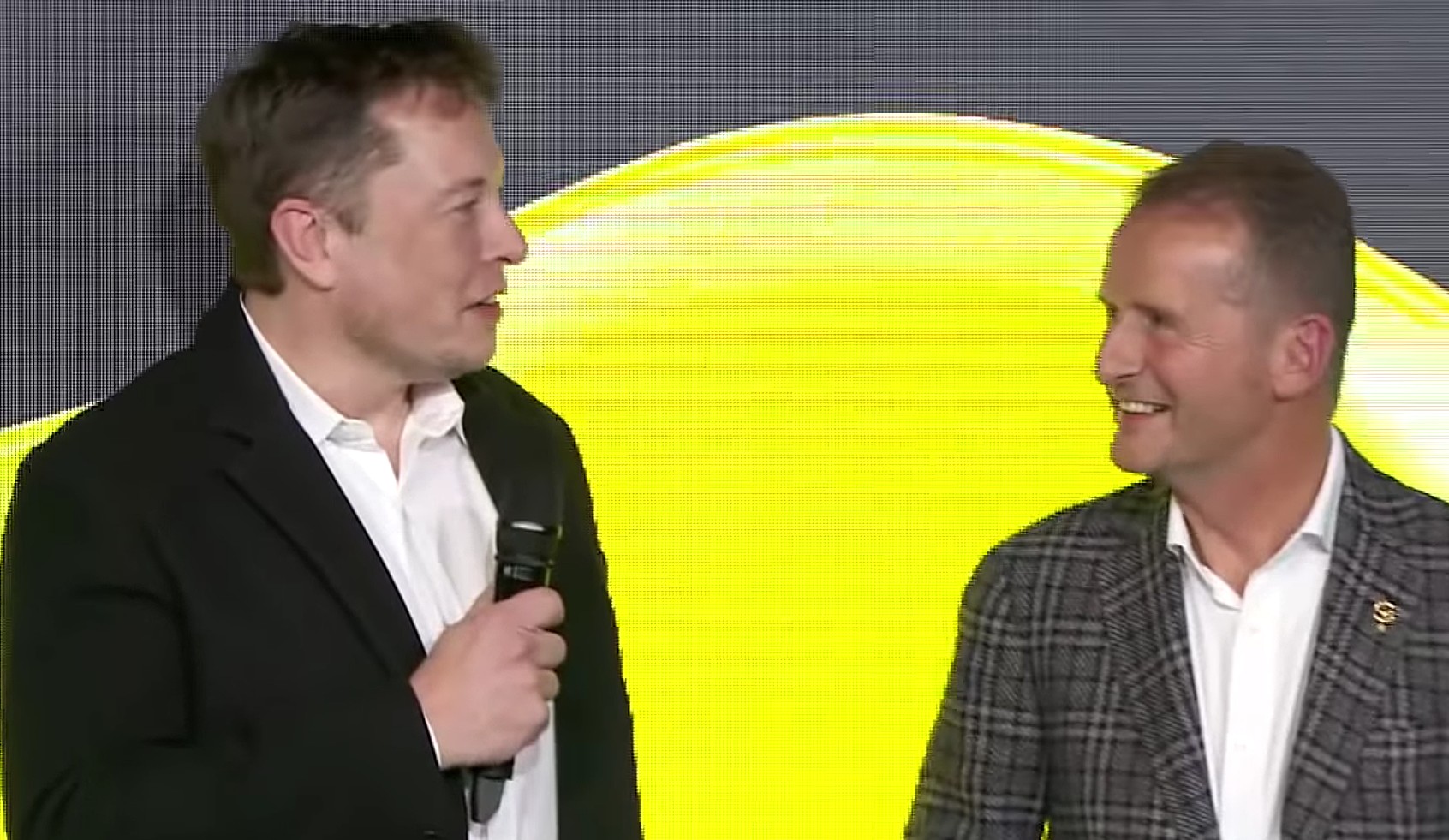
In early September 2020, Musk flew to Germany to conduct business. His final stop on his quick tour of the country was to pay his friend Diess a brief visit, where Musk drove the ID.3 from Volkswagen and took a peek at the Model Y’s competition in the ID.4. With Giga Berlin moving along swiftly and Tesla intending to start manufacturing vehicles in July 2021, it would seem that Diess would want to keep a competitor at bay and not reveal his plans for an electric car. But he was more than willing to show Musk around. Why?
While company collaborations are rare in the automotive sector, a Tesla and Volkswagen one wouldn’t be a far-fetched idea. The two companies have executives that are more than willing to show their products to each other, and the two could also help each other in improving their businesses. Volkswagen has been building cars in Germany since 1937. Eighty-five years of market data could help Tesla make an enormous impact on the German market, and Volkswagen could undoubtedly share some hints if Tesla required them.
Meanwhile, Volkswagen has had a very public problem with its MEB infrastructure within the ID family of cars. Tesla, on the other hand, has established itself as the most prominent figure in terms of software and EV tech, and it could always lend a helping hand to Volkswagen, especially considering Musk is more than willing to help electrified fleets come to life. “Tesla is open to licensing software and supplying powertrains & batteries,” Musk said to Teslarati In July. “We’re just trying to accelerate sustainable energy, not crush competitors!
Whether the two companies decide to help, each other remains to be seen. But, the partnership will help both Tesla and Volkswagen out, and in the big picture, enable the acceleration to sustainable energy to occur faster.

News
Ford is charging for a basic EV feature on the Mustang Mach-E
When ordering a new Ford Mustang Mach-E, you’ll now be hit with an additional fee for one basic EV feature: the frunk.
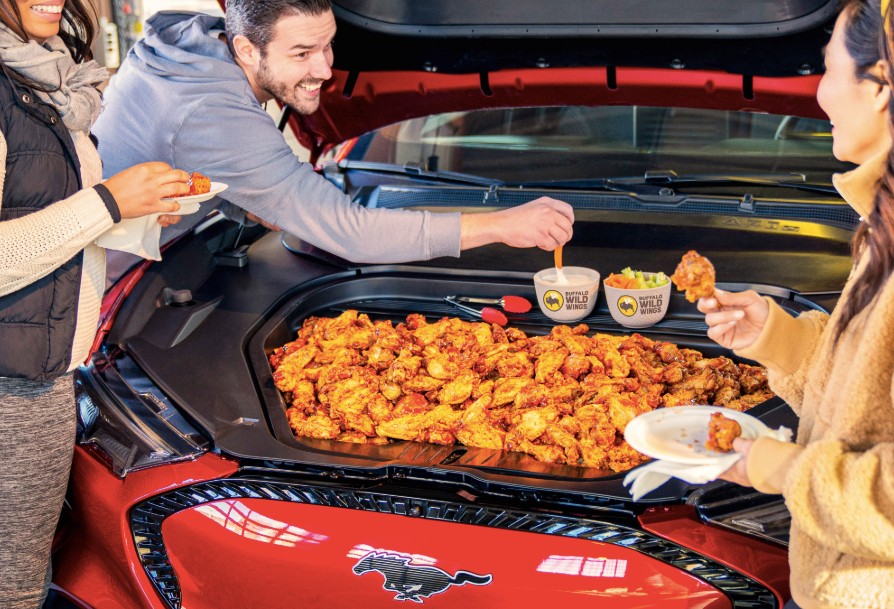
Ford is charging an additional fee for a basic EV feature on its Mustang Mach-E, its most popular electric vehicle offering.
Ford has shuttered its initial Model e program, but is venturing into a more controlled and refined effort, and it is abandoning the F-150 Lightning in favor of a new pickup that is currently under design, but appears to have some favorable features.
However, ordering a new Mustang Mach-E now comes with an additional fee for one basic EV feature: the frunk.
The frunk is the front trunk, and due to the lack of a large engine in the front of an electric vehicle, OEMs are able to offer additional storage space under the hood. There’s one problem, though, and that is that companies appear to be recognizing that they can remove it for free while offering the function for a fee.
Ford is now charging $495 on the Mustang Mach-E frunk (front trunk). What are your thoughts on that? pic.twitter.com/EOzZe3z9ZQ
— Alan of TesCalendar 📆⚡️ (@TesCalendar1) February 24, 2026
Ford is charging $495 for the frunk.
Interestingly, the frunk size varies by vehicle, but the Mustang Mach-E features a 4.7 to 4.8 cubic-foot-sized frunk, which measures approximately 9 inches deep, 26 inches wide, and 14 inches high.
When the vehicle was first released, Ford marketed the frunk as the ultimate tailgating feature, showing it off as a perfect place to store and serve cold shrimp cocktail.
Ford Mach-E frunk is perfect for chowders and chicken wings, and we’re not even joking
It appears the decision to charge for what is a simple advantage of an EV is not going over well, as even Ford loyal customers say the frunk is a “basic expectation” of an EV. Without it, it seems as if fans feel the company is nickel-and-diming its customers.
It will be pretty interesting to see the Mach-E without a frunk, and while it should not be enough to turn people away from potentially buying the vehicle, it seems the decision to add an additional charge to include one will definitely annoy some customers.
News
Tesla to improve one of its best features, coding shows
According to the update, Tesla will work on improving the headlights when coming into contact with highly reflective objects, including road signs, traffic signs, and street lights. Additionally, pixel-level dimming will happen in two stages, whereas it currently performs with just one, meaning on or off.
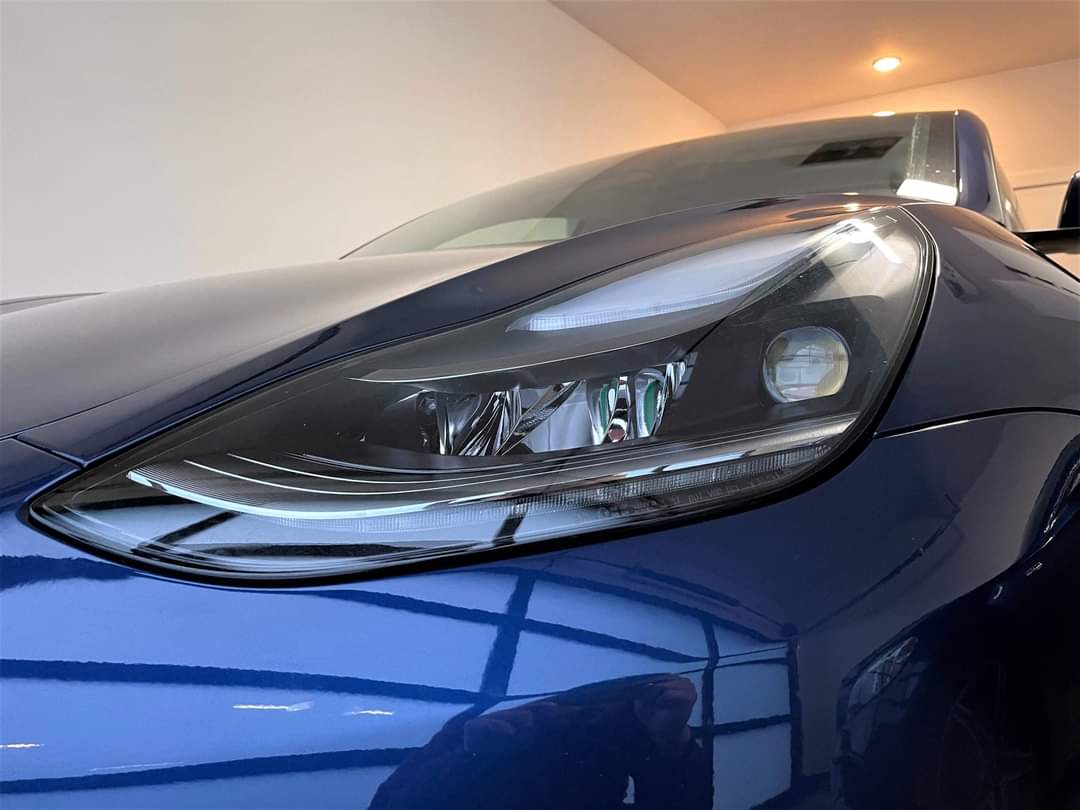
Tesla is looking to upgrade its Matrix Headlights, a unique and high-tech feature that is available on several of its vehicles. The headlights aim to maximize visibility for Tesla drivers while being considerate of oncoming traffic.
The Matrix Headlights Tesla offers utilize dimming of individual light pixels to ensure that visibility stays high for those behind the wheel, while also being considerate of other cars by decreasing the brightness in areas where other cars are traveling.
Here’s what they look like in action:
- Credit: u/ObjectiveScratch | Reddit
- Credit: u/ObjectiveScratch | Reddit
As you can see, the Matrix headlight system intentionally dims the area where oncoming cars would be impacted by high beams. This keeps visibility at a maximum for everyone on the road, including those who could be hit with bright lights in their eyes.
There are still a handful of complaints from owners, however, but Tesla appears to be looking to resolve these with the coming updates in a Software Version that is currently labeled 2026.2.xxx. The coding was spotted by X user BERKANT:
🚨 Tesla is quietly upgrading Matrix headlights.
Software https://t.co/pXEklQiXSq reveals a hidden feature:
matrix_two_stage_reflection_dip
This is a major step beyond current adaptive high beams.
What it means:
• The car detects highly reflective objects
Road signs,… pic.twitter.com/m5UpQJFA2n— BERKANT (@Tesla_NL_TR) February 24, 2026
According to the update, Tesla will work on improving the headlights when coming into contact with highly reflective objects, including road signs, traffic signs, and street lights. Additionally, pixel-level dimming will happen in two stages, whereas it currently performs with just one, meaning on or off.
Finally, the new system will prevent the high beams from glaring back at the driver. The system is made to dim when it recognizes oncoming cars, but not necessarily objects that could produce glaring issues back at the driver.
Tesla’s revolutionary Matrix headlights are coming to the U.S.
This upgrade is software-focused, so there will not need to be any physical changes or upgrades made to Tesla vehicles that utilize the Matrix headlights currently.
Elon Musk
xAI’s Grok approved for Pentagon classified systems: report
Under the agreement, Grok can be deployed in systems handling classified intelligence analysis, weapons development, and battlefield operations.

Elon Musk’s xAI has signed an agreement with the United States Department of Defense (DoD) to allow Grok to be used in classified military systems.
Previously, Anthropic’s Claude had been the only AI system approved for the most sensitive military work, but a dispute over usage safeguards has reportedly prompted the Pentagon to broaden its options, as noted in a report from Axios.
Under the agreement, Grok can be deployed in systems handling classified intelligence analysis, weapons development, and battlefield operations.
The publication reported that xAI agreed to the Pentagon’s requirement that its technology be usable for “all lawful purposes,” a standard Anthropic has reportedly resisted due to alleged ethical restrictions tied to mass surveillance and autonomous weapons use.
Defense Secretary Pete Hegseth is scheduled to meet with Anthropic CEO Dario Amodei in what sources expect to be a tense meeting, with the publication hinting that the Pentagon could designate Anthropic a “supply chain risk” if the company does not lift its safeguards.
Axios stated that replacing Claude fully might be technically challenging even if xAI or other alternative AI systems take its place. That being said, other AI systems are already in use by the DoD.
Grok already operates in the Pentagon’s unclassified systems alongside Google’s Gemini and OpenAI’s ChatGPT. Google is reportedly close to an agreement that will result in Gemini being used for classified use, while OpenAI’s progress toward classified deployment is described as slower but still feasible.
The publication noted that the Pentagon continues talks with several AI companies as it prepares for potential changes in classified AI sourcing.
